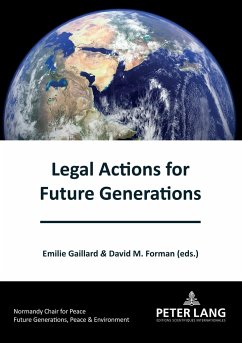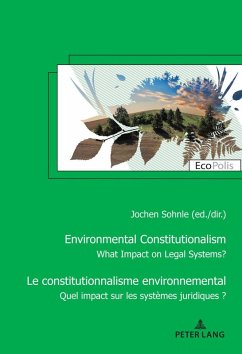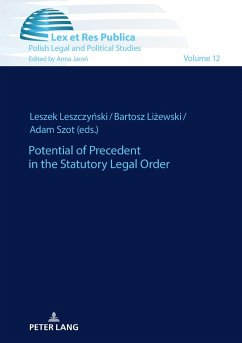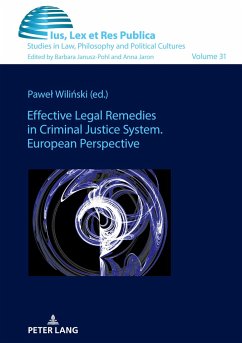
Legal Actions for Future Generations
Versandkostenfrei!
Versandfertig in 6-10 Tagen
74,90 €
inkl. MwSt.

PAYBACK Punkte
0 °P sammeln!
At present, legal definitions of justice take account of a wide spectrum of concepts operating as juridical tools to protect future generations. Environmental justice, climate justice and protection of the Commons figure alongside new ways of conceiving justice itself, which must evolve in order to fit our changing world. It cannot be denied that we live in an era of wide-ranging transformation both in Law and Human Rights. In 1993, the now famous Oposa vs Factoran case in the Philippine Supreme Court created a precedent for future generations law and paved the way for legal action on behalf o...
At present, legal definitions of justice take account of a wide spectrum of concepts operating as juridical tools to protect future generations. Environmental justice, climate justice and protection of the Commons figure alongside new ways of conceiving justice itself, which must evolve in order to fit our changing world. It cannot be denied that we live in an era of wide-ranging transformation both in Law and Human Rights. In 1993, the now famous Oposa vs Factoran case in the Philippine Supreme Court created a precedent for future generations law and paved the way for legal action on behalf of future generations. This legal action also set a global precedent, in the sense that it heralds a new era in legal action throughout the world.
Is it possible to take legal action on behalf of future generations? If so, on what legal bases could this occur? What scientific or legal fields have already been successfully used in this regard? Are there any other bases upon which such legal action could be taken? Mass disputes and litigation on behalf of Humankind in defense of the planet's future are invoking future generations in constantly increasing numbers.
Is it possible to take legal action on behalf of future generations? If so, on what legal bases could this occur? What scientific or legal fields have already been successfully used in this regard? Are there any other bases upon which such legal action could be taken? Mass disputes and litigation on behalf of Humankind in defense of the planet's future are invoking future generations in constantly increasing numbers.














